FARMER representative bodies have rallied in defence of glyphosate following last night’s ABC Four Corners program, “The Monsanto papers”, that condemned the herbicide and its manufacturer, Monsanto (now Bayer).
Grower groups have criticised the program for dealing largely in opinion rather than science, and for raising points out of context and omitting key findings.
The Four Corners program accused Monsanto of allegedly using underhand tactics to protect its glyphosate products, including ghost-writing reviews that overstated their safety.
It highlighted a landmark court case in the United States in August where a jury found the glyphosate-based product, Roundup, contributed to a Californian man’s terminal cancer.
It also pointed to a study in 2015 by the International Agency for Research on Cancer (IARC) which found glyphosate was ‘probably carcinogenic to humans’.
The program singled out the regulator, the Australian Pesticides and Veterinary Medicines Authority (APVMA), for not formally reviewing glyphosate in more than two decades and questioned its independence. The APVMA conducted a scientific evaluation of the IARC report in 2016 and decided there was no reason to formally review glyphosate. Cancer Council Australia has called for an independent review of glyphosate.
GrainGrowers
GrainGrowers chief executive officer, David McKeon, said: “The ABC program, in some areas, was heavily based on opinion rather than the weight of science, which was disappointing but not unexpected.”
Responding to calls for a review of glyphosate, Mr McKeon said glyphosate was already a heavily regulated product at both national and state level and was controlled in Australia by a regulatory system that “is among the best in the world”.
“From a regulatory perspective, even as recently as 2016 the APVMA did an assessment of whether they should review glyphosate. They determined at that point in time that it wasn’t necessary to do a full review of the product,” he said.
“When we consider where glyphosate sits amongst the range of chemical products registered in Australia and internationally, it is one of the safest and less harmful products on the market.
“The APVMA’s efforts on the re-registration of chemicals needs to be on those more toxic and hazardous products.”
Mr McKeon said glyphosate was just one of the tools in a farmer’s toolbox and that it was of critical importance to modern Australian farming practices.
“The ability of farmers to conserve moisture through the control of summer weeds through the strategic application of glyphosate has revolutionised the ability to capture moisture and turn it into grain. That has led to significant improvements to water use efficiency across Australia,” he said.
Grain Producers Australia (GPA)
Grain Producers Australia chairman, Andrew Weidemann, said the Four Corners program “wasn’t as bad as I thought it might be”, but it was clear that there was a big disconnect between the consumer and agriculture.
Mr Weidemann said there was no credible science that had indicated anything other than glyphosate being a safe product if used in accordance with its safety instructions.
He said the IARC found that it was a potential carcinogen, but included on the same list were other things such as grapefruit, tea and coffee.
Mr Weidemann said if a review was required, the GPA would be supportive, but he had not seen any evidence credibly presented that would suggest that needed to happen.
“The bottom line is we know glyphosate has been transformational in terms of change to conservation farming. It continues to provide the benefits to growers of being able to produce more on less water.
“If we were to face the chance of losing it, it is a wakeup call for industry to start thinking about alternatives. But nobody has been able to come up with anything that is a safe to use as glyphosate has been.
“As a grower, I certainly don’t want to be reverting to other products that are not as safe.”
National Farmers’ Federation
National Farmers’ Federation (NFF) president Fiona Simson said the ABC program placed disproportionate weight on unfounded opinions when compared to that given to established science.
“The scientific evidence on glyphosate’s safety is clear and overwhelming. Unfortunately, the opinions offered by a number of sources, did not draw on this evidence,” she said.
Ms Simson said no other agricultural chemical compound had been tested to the extent that glyphosate had.
“More than 800 scientific studies and reviews, including numerous independent regulatory safety assessments, affirm that glyphosate is safe and does not cause cancer. ”
Ms Simson said the chemical compound had been approved for use by every regulator across the world, including the APVMA, since 1974.
“Glyphosate has allowed farmers to embrace minimum tillage cropping systems – one of the greatest advancements in agricultural sustainability in recent decades,” she said.
By managing weeds above the ground, farmers can plough their fields less often – reducing greenhouse gas emissions and maintaining soil health and soil moisture.
Glyphosate is also a critical tool in the control of noxious weeds, which cause enormous biodiversity loss if left unchecked.
“There is simply no alternative, that is as safe and as effective as glyphosate, for these purposes.”
Ms Simson said a recent longitudinal study by the United States’ National Institute of Agriculture followed 57,000 farmers and registered applicators of glyphosate for more than 20 years. The study found no connection between cancer and glyphosate.
WAFarmers
WAFarmers Grain Council president, Duncan Young, said the portrayal of glyphosate as a cancer causing agent had been blown out proportion by the Four Corners program.
“The program lacked substantial scientific evidence and rather relied on pseudo-scientific claims and hearsay that glyphosate was responsible for causing farmers cancer and was the sole carcinogenic involved in the US Court case between a retired groundskeeper and Monsanto (Bayer),” he said.
“The program angled that the world’s most regularly applied herbicide was linked to false analysis conducted by Monsanto (Bayer), and that the chemical company repeatedly ignored experts warning and helped to ‘ghost-write’ research that encouraged continued usage of the herbicide.
“What the program failed to address was the clear and overwhelming scientific evidence from independent regulators that glyphosate-based products are safe.
“Detailed analysis and assessment have been carried out in over 800 scientific studies and reviews, including by Australia’s own independent regulator the Australian Pesticides and Veterinary Medicines Association (APVMA).
“Every independent, science-based regulatory agency around the globe has comprehensively evaluated the herbicide and found it safe to use in accordance with label directions.”
Mr Young said the recent Californian jury decision on glyphosate had led to an alarmist response to global use of the herbicide.
“The public need to understand that the Australian regulatory system is supported by highly-qualified and globally respected medical and toxicological scientists who have decades of experience and knowledge on agricultural chemicals,” he said.
“It is crucial that any debate on farming is informed and based on scientific evidence and not on rhetoric driven by emotion.”
Boggabilla farmer
North west NSW farmer, Pete Mailler, Boggabilla, who featured in last night’s program, posted the following tweet this morning:
“In all things we should look to the quality of the evidence. Science is the best tool to understand our environment and we need to be able to trust it. I am confident in the determination of the APVMA in approving glyphosate. I am also confident in the science of the IPCC (Intergovernmental Panel on Climate Change).”
Federal Minister for Agriculture and Water Resources
The Australian Minister for Agriculture and Water Resources, David Littleproud, said the APVMA was an independent regulator charged with determining which chemicals were safe and how they should be used.
“Politicians don’t make decisions on which chemicals are safe or how they should be used; the scientists do – as they should,” he said.
I back the APVMA. I am confident the APVMA is competent and independent. I have taken steps to further protect its independence by introducing legislation to have a skills-based board to protect the transparency and accountability of the APVMA and its function.
“The weight of the objective scientific evidence shows when used in accordance with label instructions, glyphosate can be used safely.”
APVMA
The APVMA said it had considered the evidence presented in the Californian case and found no grounds to take regulatory action in Australia.
It said Australia’s risk-based, scientific approach to regulation ensured that each agricultural chemical product was thoroughly and independently assessed by the APVMA prior to registration and supply.
The registration system was supported by a range of post market surveillance, compliance, audit verification and review activities that ensured products available in Australia continue to be used safely and effectively.
The APVMA said its regulatory decisions took account of extensive scientific information and the World Health Organization’s International Agency for Research on Cancer (IARC) report 2015 provided a valuable input to the ongoing assessment of the risks associated with glyphosate.
The APVMA considered the IARC report in 2016, along with an examination of many other scientific trials and studies, and like other regulators, the APVMA determined that glyphosate was safe to use according to label directions.
It said the manner in which the APVMA was funded bore no influence on the body’s independent regulatory activities.
Greens senator
Greens senator Janet Rice said the government must call an independent and transparent review into the health effects of glyphosate following the Four Corners’ revelations.
“The concerns over the safety of the chemical glyphosate raised by the World Health Organisation and now Cancer Council Australia are very serious. It is imperative that the Coalition government immediately instigate an independent and transparent review into the health effects of the chemical,” Senator Rice said.
“Four Corners’ investigation last night revealed deeply troubling behaviour by Bayer and Monsanto apparently covering up possible health impacts of glyphosate.
“This review must also call on Bayer, the owner of RoundUp, to publicly release all of its internal science.
“The fact the APVMA does not consider a review is necessary does not give me any comfort. They are too close to the industry they regulate to be objective.”
CropLife Australia
CropLife Australia chief executive officer, Matthew Cossey, said there was no basis that would warrant an inquiry into the independence of the APVMA.
“It is concerning that media based on emotional speculation with no scientific basis has led to these calls,” he said.
“The APVMA is universally recognised as a world-leading regulator which makes decisions based strictly on science and evidence. The concerns CropLife has shared about the APVMA relate only to its timeliness in approving vital agricultural products.”
Bayer
Bayer, in a statement, said glyphosate had been used safely for more than 40 years, but the ABC Four Corners report did not accurately or fairly reflect the safety of the product.
“IARC’s 2015 classification of glyphosate is an outlier even within the World Health Organisation (WHO) system. The classification of glyphosate as a probable carcinogen places it in the same category as red meat and very hot beverages,” the statement said.
“IARC is just one of four WHO agencies to have assessed glyphosate – the other three agencies found that glyphosate does not present a cancer or human health risk.
“Since IARC made this assessment, regulatory authorities in the European Union, Germany, New Zealand, South Korea, Japan, Canada and the United States have reaffirmed that glyphosate does not cause cancer.
“The extensive body of research on glyphosate and glyphosate-based herbicides includes more than 800 rigorous registration studies required by regulators, which show these products are safe when used as directed. In its 2017 post-IARC cancer risk assessment, the US Environmental Protection Agency examined more than 100 studies conducted by different parties and concluded that glyphosate is ‘not likely to be carcinogenic to humans’ – its most favourable rating.
“Further to this, the Joint World Health Organisation/Food and Agricultural Organisation Joint Meeting on Pesticide Residues also found glyphosate does not cause cancer.
“Additionally, the largest and most recent study by the US National Cancer Institute which followed over 50,000 pesticide applicators in the US found no association between glyphosate-based herbicides and cancer.
“We also strongly reject the claims made about the company’s actions related to glyphosate. We are committed to the highest principles of scientific integrity and excellence, and we will continue to use our expertise to develop safe and effective tools that help farmers produce crops more sustainably.”

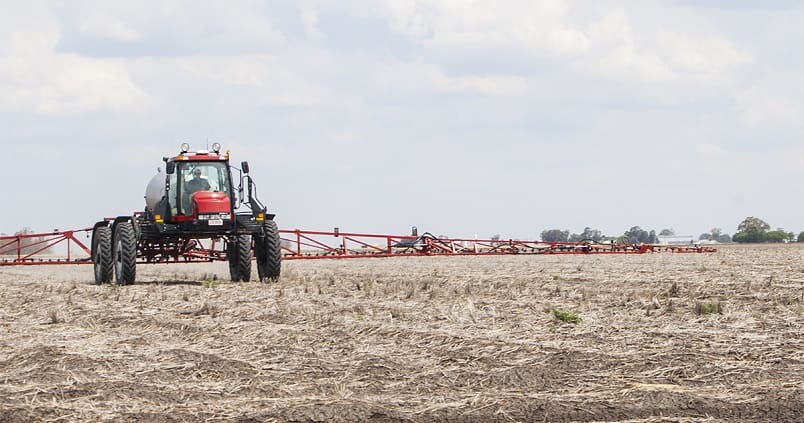

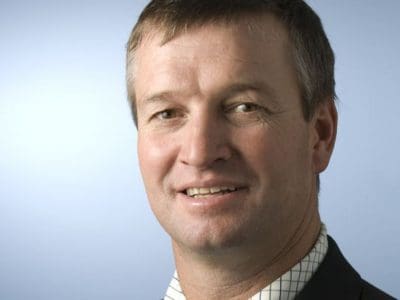
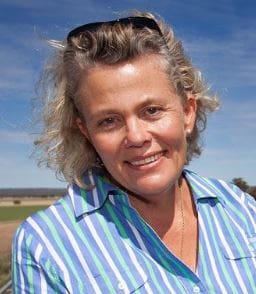
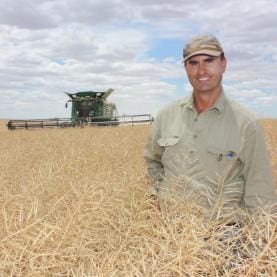
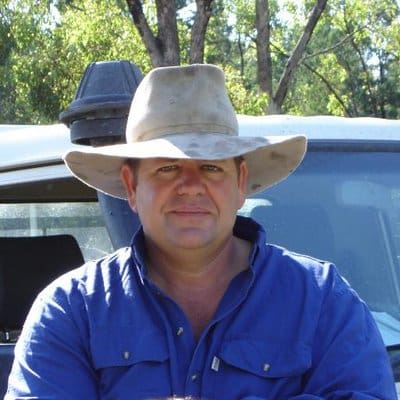

If all those who think Glyphosate is so safe, including Bayer and CropLife, in the midst of such a disagreement, what better way to demonstrate its safety conclusively than an independent scientific study. What could they possibly have to lose? Wouldn’t they welcome such an opportunity?
For deniers of climate change science – this is what it feels like when basic science and consensus positions are rejected and gut feelings, intuition, emotional storylines and vested interests influence a policy debate.
It’s very frustrating and ultimately very dangerous thinking.